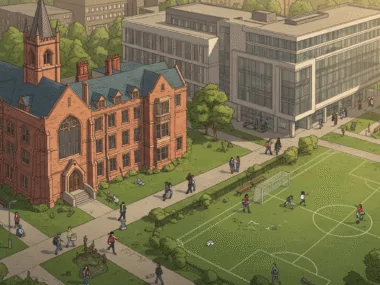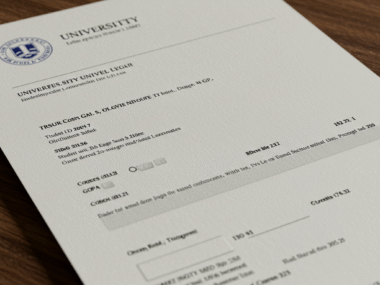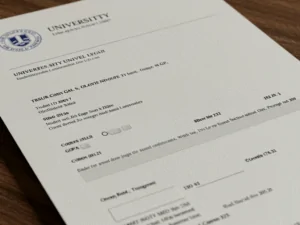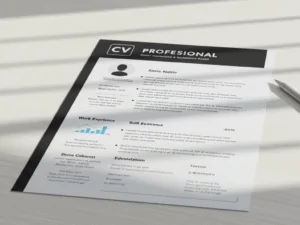Ever pictured yourself studying in a vibrant country with top-notch schools, stunning landscapes, and a welcoming vibe? Choosing the right program to study in Canada is your first step toward making that dream real, and it’s a big decision that shapes your career and life.
In 2025, Canada is a hotspot for international students, offering world-class education and pathways to work and residency. This guide walks you through how to pick the perfect program, from aligning your goals to understanding costs and job prospects. Let’s dive into finding the program that’s just right for you!
Why Study in Canada?
Canada is one of the top destinations for international students, hosting over 800,000 in 2024, per IRCC data. Its appeal lies in quality education, affordable living, and immigrant-friendly policies. Here’s why Canada stands out in 2025:
- World-Class Education: Canadian universities like UBC, Toronto, and McGill rank in the global top 100 (QS Rankings 2025).
- Work Opportunities: International students can work up to 20 hours/week during studies and apply for a Post-Graduation Work Permit (PGWP) for up to three years.
- Path to Residency: Programs aligned with in-demand careers boost your chances for permanent residency (PR) via Express Entry or Provincial Nominee Programs (PNPs).
- Affordable Costs: Tuition ranges from CAD 15,000–40,000/year (~₦24–64 million at ₦1,600/CAD), cheaper than the U.S. or UK.
- Safe and Diverse: Canada’s low crime rates and multicultural cities like Toronto and Vancouver make it ideal for students.
Example: A Nigerian student studies nursing in Alberta, works part-time, and secures PR after graduation, building a stable career.
Step-by-Step Guide to Choosing the Right Program
Picking a program isn’t just about what sounds cool, it’s about aligning your interests, skills, and goals with Canada’s education and job market. Follow these steps to make a smart choice in 2025:
Step 1: Define Your Goals and Interests
Start by asking yourself what you want from your studies and career. Your goals shape your program choice, ensuring it’s a stepping stone to success.
- Career Goals: Do you want to be a software engineer, nurse, or business manager? Choose programs that lead to clear job paths.
- Academic Interests: Love tech, healthcare, or arts? Pick a field you’re passionate about to stay motivated.
- Long-Term Plans: Plan to stay in Canada or return home? Programs like engineering or nursing offer PR pathways in Canada and global opportunities.
- Skill Gaps: Want to upskill? A master’s in data science or a diploma in cybersecurity can boost your resume.
Example: Chidi, a Nigerian graduate, loves tech and wants PR. He chooses a computer science master’s to align with Canada’s tech boom and immigration options.
Tip: Write down your top three career goals to narrow your focus.
Step 2: Research Program Types
Canada offers various study levels, each suiting different needs. Understand what’s available to pick the right fit:
- Undergraduate Degrees (Bachelor’s):
- Duration: 3–4 years.
- Cost: CAD 20,000–40,000/year (~₦32–64 million).
- Best For: High school graduates (e.g., WAEC/NECO with 5 credits) seeking a broad education.
- Examples: B.Sc. Computer Science, B.A. Business Administration, B.N. Nursing.
- Graduate Degrees (Master’s):
- Duration: 1–2 years.
- Cost: CAD 15,000–35,000/year (~₦24–56 million).
- Best For: Bachelor’s holders aiming to specialize or boost PR chances.
- Examples: M.Sc. Data Science, MBA, M.Eng. Civil Engineering.
- Doctoral Degrees (PhD):
- Duration: 3–5 years.
- Cost: CAD 10,000–20,000/year (often funded with stipends).
- Best For: Researchers or academics with a master’s degree.
- Examples: PhD in Artificial Intelligence, PhD in Public Health.
- Diplomas and Certificates:
- Duration: 1–2 years.
- Cost: CAD 10,000–20,000/year (~₦16–32 million).
- Best For: Career changers or those seeking quick, job-focused skills.
- Examples: Diploma in IT, Certificate in Early Childhood Education.
- Postgraduate Diplomas (PGDs):
- Duration: 1–2 years.
- Cost: CAD 12,000–25,000/year (~₦19–40 million).
- Best For: Graduates wanting practical skills for Canada’s job market.
- Examples: PGD in Project Management, PGD in Digital Marketing.
Tip: Nigerians often choose diplomas or PGDs for affordability and faster job entry, like IT or healthcare programs.
Step 3: Match Programs to Canada’s Job Market
Canada’s labor shortages in 2025 create opportunities, but you must pick programs with strong job prospects to maximize your investment. Use the National Occupational Classification (NOC) codes to identify in-demand fields.
High-Demand Fields in Canada 2025
- Technology:
- Roles: Software developer, data scientist, cybersecurity analyst.
- Programs: B.Sc./M.Sc. Computer Science, Diploma in IT, PGD in AI.
- Salary: CAD 70,000–120,000/year.
- Demand: Over 100,000 tech vacancies (CBRE 2025).
- Healthcare:
- Roles: Registered nurse, medical technician, pharmacist.
- Programs: B.N. Nursing, Diploma in Practical Nursing, M.Sc. Public Health.
- Salary: CAD 60,000–100,000/year.
- Demand: 120,000 healthcare jobs open (Job Bank 2024).
- Business and Finance:
- Roles: Financial analyst, accountant, marketing manager.
- Programs: MBA, B.Com. Accounting, PGD in Business Analytics.
- Salary: CAD 60,000–110,000/year.
- Demand: High in Toronto and Calgary.
- Engineering:
- Roles: Civil engineer, mechanical engineer, software engineer.
- Programs: B.Eng./M.Eng. in Civil or Software Engineering.
- Salary: CAD 70,000–120,000/year.
- Demand: Strong in Alberta’s energy sector.
- Trades and Skilled Work:
- Roles: Electrician, plumber, welder.
- Programs: Diploma in Electrical Technology, Certificate in Welding.
- Salary: CAD 50,000–80,000/year.
- Demand: High in rural areas.
- Education:
- Roles: Teacher, early childhood educator.
- Programs: B.Ed., Diploma in Early Childhood Education.
- Salary: CAD 50,000–90,000/year.
- Demand: Growing in British Columbia and Ontario.
Example: Ada, a Nigerian, picks a two-year PGD in Data Analytics, knowing data scientists are in demand, landing a CAD 85,000 job in Vancouver post-graduation.
Tip: Check Job Bank Canada’s trend analysis to confirm demand for your chosen field.
Step 4: Consider Your Academic and Financial Capacity
Your grades, work experience, and budget play a big role in program choice. Be realistic to avoid stress.
Academic Requirements
- Undergraduate: WAEC/NECO with 5 credits (including English and Math), minimum C average (60–70%).
- Master’s: Bachelor’s degree with 2:2 or higher (GPA 3.0/5.0), plus relevant experience for some programs (e.g., MBA).
- Diplomas/PGDs: High school diploma or bachelor’s degree, often with lower grade requirements.
- English Proficiency: IELTS 6.0–7.0 (no band below 6.0) or TOEFL equivalent. Some colleges accept WAEC English (C6 or better) or proficiency letters.
- Additional Tests: GRE/GMAT for some master’s programs (e.g., MBA at UBC).
Example: A Nigerian student with a 2:2 in Economics opts for a PGD in Business Management at Seneca College, bypassing GMAT requirements.
Financial Considerations
- Tuition: CAD 10,000–40,000/year, depending on program and school.
- Living Costs: CAD 10,000–20,000/year (~₦16–32 million), higher in Toronto (CAD 15,000) than Winnipeg (CAD 10,000).
- Funding Options:
- Scholarships: Merit-based (e.g., UBC International Leader Award, CAD 5,000–20,000).
- Part-Time Work: Earn CAD 15–20/hour (~₦24,000–32,000) for 20 hours/week.
- Loans: Nigerian banks or international lenders like Prodigy Finance.
- Total Budget: ₦40–100 million for 1–4 years, including tuition, living, and travel.
Example: Emeka budgets ₦60 million for a two-year IT diploma, covering CAD 15,000/year tuition and CAD 12,000/year living costs, supplemented by part-time work.
Tip: Choose colleges like Centennial or Humber for lower tuition (CAD 12,000–18,000) if funds are tight.
Step 5: Evaluate Schools and Locations
Not all schools or cities are equal. Pick ones that match your program, budget, and lifestyle.
Top Schools for International Students
- Universities:
- University of Toronto: Top for business, tech, and medicine.
- UBC (Vancouver): Strong in engineering and environmental sciences.
- McGill (Montreal): Great for arts, law, and healthcare.
- Colleges:
- Seneca College (Toronto): Affordable IT and business diplomas.
- George Brown College (Toronto): Culinary, design, and health programs.
- Bow Valley College (Calgary): Practical nursing and trades.
Location Factors
- Toronto, Ontario: Largest job market, high living costs (CAD 15,000/year), diverse.
- Vancouver, BC: Tech hub, scenic, expensive rent (CAD 1,500/month).
- Montreal, Quebec: Affordable (CAD 10,000/year), French preferred, strong AI sector.
- Calgary, Alberta: Energy and trades jobs, lower tuition, cold winters.
- Halifax, Nova Scotia: Smaller, affordable, growing tech and education sectors.
Example: A Nigerian student picks Montreal’s Concordia University for a master’s in AI, enjoying low rent (CAD 800/month) and Quebec’s tech scene.
Tip: Research schools’ Designated Learning Institution (DLI) numbers, required for student visas.
Step 6: Check Program-Specific Details
Each program has unique features that affect your decision. Dig into these details:
- Curriculum: Does it cover skills you need? (e.g., Python for tech, clinicals for nursing)
- Duration: Shorter programs (1–2 years) save money and get you working faster.
- Co-op/Internships: Programs with paid work terms (e.g., Waterloo’s co-op) boost job prospects.
- Accreditation: Ensure the program is recognized (e.g., CPA for accounting, CCNE for nursing).
- Delivery Mode: On-campus, online, or hybrid? On-campus offers networking; online suits working students.
- Career Support: Does the school offer job fairs, resume workshops, or alumni networks?
Example: Tolu chooses a co-op IT diploma at Conestoga College, gaining six months’ paid work experience, leading to a full-time job.
Tip: Email program coordinators for details on internships or job placement rates.
Step 7: Understand Immigration and Work Benefits
Your program choice impacts your ability to stay and work in Canada post-graduation. Focus on programs eligible for the PGWP and aligned with PR pathways.
Post-Graduation Work Permit (PGWP)
- Eligibility: Full-time programs of 8+ months at a DLI.
- Duration: Matches program length (e.g., 2-year diploma = 2-year PGWP, up to 3 years).
- Benefit: Work full-time in any job to gain Canadian experience for PR.
Example: A Nigerian student completes a 2-year nursing diploma, gets a 2-year PGWP, and works as a nurse while applying for PR.
Permanent Residency Pathways
- Express Entry: Programs in tech, healthcare, or business score high on the Comprehensive Ranking System (CRS).
- PNPs: Provinces like Ontario (OINP) or BC (BC PNP) nominate graduates in demand fields.
- Quebec Experience Program (PEQ): For French-speaking graduates in Quebec.
Tip: Choose 2+ year programs for a 3-year PGWP, maximizing PR chances.
Step 8: Compare Costs and Funding Options
Balance program costs with your budget and funding sources to avoid financial stress.
Sample Budget (2-Year Program, Nigerian Perspective)
- Tuition: CAD 15,000/year x 2 = CAD 30,000 (~₦48 million).
- Living Costs: CAD 12,000/year x 2 = CAD 24,000 (~₦38.4 million).
- Flights: CAD 1,500 round-trip (~₦2.4 million).
- Visa/IELTS: CAD 500 + ₦300,000 (~₦1.1 million).
- Total: ~₦90 million, spread over 2 years.
Funding Strategies
- Scholarships: Apply for entrance awards (CAD 1,000–10,000) or government-funded Vanier Scholarships for PhDs.
- Part-Time Work: Earn CAD 3,000–6,000/year (~₦4.8–9.6 million) at 20 hours/week.
- Family Support: Common for Nigerian students; budget early to avoid loan dependence.
- Loans: International student loans from MPOWER or Nigerian banks (e.g., Access Bank).
Example: Ngozi secures a CAD 5,000 scholarship and works 15 hours/week, covering 30% of her CAD 20,000/year living costs.
Tip: Check school websites for international student funding and apply early.
Step 9: Seek Advice and Do Your Homework
Don’t choose in a vacuum—get insights from others and verify your options.
- Talk to Current Students: Connect via LinkedIn or school forums to ask about program quality and job outcomes.
- Consult Alumni: Nigerian alumni in Canada share tips on X or diaspora groups.
- Use Education Agents: Licensed agents in Nigeria (regulated by CICC) guide program and visa processes, but verify their advice.
- Attend Fairs: Virtual or in-person Canadian education fairs (e.g., EduCanada) offer school reps and visa info.
- Research Rankings: Use QS or Maclean’s to check program reputations, but prioritize job outcomes over prestige.
Example: A Nigerian student emails a UBC alum on LinkedIn, learning their engineering master’s led to a CAD 90,000 job, confirming their choice.
Tip: Avoid unverified agents charging high fees; use free resources like EduCanada.
Step 10: Apply and Prepare for Success
Once you’ve chosen your program, act fast to meet deadlines and prepare for Canada.
Application Process
- Deadlines: Fall 2025 intake (September) deadlines are December 2024–March 2025; Winter (January) deadlines are August–October 2025.
- Documents:
- Transcripts (WAEC/NECO, degree).
- IELTS/TOEFL scores.
- Statement of Purpose (500–1,000 words on your goals).
- Reference letters (2–3 from teachers/employers).
- Passport copy.
- Fees: CAD 100–200/application (~₦160,000–320,000).
- Apply Early: Some programs fill up fast, like nursing or tech.
Visa Process
- Study Permit: Apply after admission with a DLI letter, proof of funds (CAD 20,635/year), and acceptance letter.
- Cost: CAD 150 (~₦240,000).
- Processing Time: 6–12 weeks; apply via VFS Global in Nigeria.
Example: Funmi applies to three colleges in January 2025, gets accepted by April, and secures a study permit by July for September start.
Tip: Double-check application and visa requirements to avoid rejections.
Challenges and Solutions
- Overwhelming Options: Narrow choices by focusing on 2–3 fields and provinces. Use school comparison tools.
- High Costs: Opt for colleges or smaller cities (e.g., Winnipeg) for lower tuition and rent.
- Visa Delays: Apply 3–6 months early and track status online.
- Academic Gaps: Take bridging courses (e.g., English upgrading) if grades are low.
- Job Uncertainty: Choose programs with co-ops or high employability (e.g., 90% placement for Seneca IT graduates).
Why 2025 Is the Perfect Time to Study in Canada
- Increased Intake: Canada plans to admit 1 million students by 2027, easing competition.
- Job Market Boom: Tech, healthcare, and trades face shortages, hiring graduates fast.
- New Immigration Rules: Streamlined PGWP and PNP processes for in-demand fields.
- Scholarship Growth: More funding for international students, like Ontario’s $5,000 newcomer awards.
- Digital Tools: Virtual fairs and online applications simplify the process.
Sample Plan for Nigerian Students
Scenario: Recent Graduate
- Profile: 22-year-old Nigerian, WAEC with 6 credits, wants a tech career and PR.
- Goal: Study a 2-year IT diploma, work in Canada, and apply for PR.
- Program: Diploma in Software Development at Centennial College (Toronto).
- Timeline:
- June 2025: Take IELTS (₦300,000), research programs.
- August 2025: Apply to Centennial and two other colleges (CAD 450 total).
- December 2025: Get acceptance, apply for study permit (CAD 150).
- July 2026: Arrive in Canada, start classes.
- July 2028: Graduate, get 2-year PGWP, work as a developer.
- July 2029: Apply for PR via CEC.
- Budget:
- Tuition: CAD 16,000/year x 2 = ₦51.2 million.
- Living: CAD 12,000/year x 2 = ₦38.4 million.
- IELTS/Visa/Flights: ₦4 million.
- Total: ~₦93.6 million, offset by CAD 5,000 scholarship and part-time work.
Steps
- Define tech career goals.
- Shortlist IT diplomas in Ontario and BC.
- Apply to DLIs with co-op options.
- Secure funding and study permit.
- Network with employers during studies.
Frequently Asked Questions
What’s the best program to study in Canada?
It depends on your goals, but tech, healthcare, and business offer high demand and PR pathways.
Can I study without IELTS?
Some colleges accept WAEC English (C6+) or proficiency letters, but IELTS is safer for visas.
How do I know if a program leads to PR?
Check if it’s PGWP-eligible and aligns with NOC codes for Express Entry or PNPs.
Are Canadian degrees recognized in Nigeria?
Yes, Canadian credentials are globally respected, boosting job prospects back home.
How can I afford to study in Canada?
Combine scholarships, part-time work, and family support; colleges are cheaper than universities.
Final Thoughts
Choosing the right program to study in Canada in 2025 is your ticket to a world-class education, an exciting career, and possibly a new life in one of the world’s best countries. Whether you’re a Nigerian dreaming of coding in Toronto or nursing in Calgary, it’s about aligning your passions with Canada’s job market, budget, and immigration options.
Start by defining your goals, researching programs, and picking schools that offer co-ops and PR pathways. With careful planning, you can turn your study dreams into reality. Don’t wait, begin exploring your perfect program today and get ready to shine in Canada!










